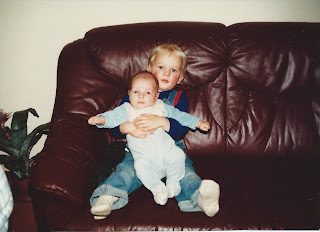Sharon put down the book. She didn't know whether to laugh or cry. Laughter would be aimed at herself for being so naive. Crying would be for any of her classmates or other students who had gone through the same experiences as the author of the book she had just finished reading. But maybe he was the only one, she thought; although her real hope was that no child would ever have to experience predatory actions from adults, especially from a teacher.
The book was a novel, but the author indicated it was based on events from his childhood that he had kept secret from everyone. Sharon knew the teacher was Mr. Crawford, her fourth grade and favorite elementary school teacher.
Sharon had felt she was special to Mr. Crawford, but not in any shameful way. She thought he considered every student in his class special. She had considered him special, because he had taken the time to verify that Sharon's inconsistent grades were not the result of her not knowing the material. Sharon needed glasses.
When Mr. Crawford handed out problems to solve or tests on paper, Sharon got most of the answers right. He had consoled her when tears filled her eyes whenever her grades weren't what she expected. It had always been that way. Tears came all too easily for Sharon, the source for the nickname her classmates gave her: Cry Baby. Mr. Crawford told her that her ability to bring tears to her eyes so easily might be a talent she could develop later in life. She could be an actress. Actors need to be able to display emotions at any time. He was the first teacher to give her encouragement, to see her ability to bring up emotions easily as a positive thing and to encourage her to develop the ability to control her emotions for the right moment, instead of just telling her to stop it, to grow up and quit behaving like a baby.
One reason Sharon's grades disappointed her was that Sharon couldn't always see arithmetic problems on the blackboard clearly enough. If the problem involved words, she could figure out what she couldn't see by what she could see, but when the problems involved numbers, she couldn't always figure out what the shapes were. So she made mistakes, lots of mistakes. Fourth grade was when multiplication and division were introduced, so there were lots of number problems to solve.
One day as class was about to be dismissed, Mr. Crawford asked Sharon to stay. He told her to stand in the back of the room while he walked to the front and raised one of the maps that covered a section of the blackboard. On the board were several arithmetic problems. These were all completed, so it wasn't like a test. But the problems were a mixture of addition, subtraction, multiplication, and division.
Multiplication and division had been difficult for Sharon and the plus sign for addition looked so much like the times and division signs from the back of the room. Mr. Crawford asked her to read the problems. She admitted she was guessing as she read. Sometimes, if she could see one of the top numbers and the bottom number, she could figure out the other number and whether the problem was addition or multiplication.
Multiplication and division had been difficult for Sharon and the plus sign for addition looked so much like the times and division signs from the back of the room. Mr. Crawford asked her to read the problems. She admitted she was guessing as she read. Sometimes, if she could see one of the top numbers and the bottom number, she could figure out the other number and whether the problem was addition or multiplication.
After Sharon completed reading the problems to Mr. Crawford, he gave her a note to take home to her parents. He told her he thought she needed glasses and suggested that her parents have her eyes tested.
Sharon's mother was surprised when she read the note because she knew the school administered eye tests each year and no one at the school had indicated Sharon's vision might need correcting. But no one had ever asked Sharon if she understood what the eye test was for. She knew it was a test, so it was just one more time when she wanted to get all the answers right. Sharon didn't remember if she did anything to make sure she answered correctly.
The eye chart in elementary school wasn't like the one in optometrists' offices. It only had the letter E on it. Sometimes the E was correct, sometimes it was backward, sometimes it was lying on its back, and sometimes it was standing on its three arms. Students were supposed to point in the direction the arms were pointing. It seemed like a game.
When Sharon had her eyes tested in a doctor's office, it was clear that she needed glasses. The day after her exam, she told Mr. Crawford she was getting glasses and asked him not to tell anyone in the class. She wanted him to keep her secret so it would be a surprise when she arrived in school the next week wearing glasses.
Now, five years after Mr. Crawford's death at 82 years old, she learned that at least one of Mr. Crawford's students saw a very different side of him. Even when Sharon's mother told her that Mr. Crawford had left the school district, moved out of town and there were rumors about the reason for his departure, Sharon hadn’t asked for details. If they had been important, she thought her mother would have told her. Sharon assumed the reason for his departure was that his marriage was troubled and any talk of divorce among the teaching staff at that time was scandalous. It was only now, after reading the work of fiction that developed characters along troubled paths as a result of a teacher’s inappropriate touching, that Sharon learned the real reason for Mr. Crawford’s departure. Instead of separation and divorce, Mr. Crawford remained married for the 44 years until his death.
Sharon couldn't stop remembering the good he did. She thought about all the crime shows on TV about child predators and the message in them, repeated again and again, that such people could never be cured. Once a predator, always a predator. Sharon wanted desperately to believe that was wrong, that at least one man who acted inappropriately with at least one 9-year-old child did find redemption though counseling and a 44-year-long marriage.
Sharon thought about her own grandchild, still several years away from going to school. She thought about how important it was for parents, for grandparents, for all adults who care about children to pay attention to unexplained changes in a child’s behavior and to talk with the child. In addition to reminders not to accept candy or rides from strangers, children need to know they should tell an adult they trust if ever an adult – not just a stranger, but any adult – does or says something that makes them feel bad or uncomfortable.
Maybe if the schools had done more to explain the difference between good touching and bad touching forty years ago, Mr. Crawford would have known his students wouldn’t keep quiet. Maybe then he would have restrained his urges and remained that special teacher for Sharon and his other students.
Maybe the author breaking his silence about the secret he kept for nearly fifty years will help other adults and children talk about good secrets and bad secrets, as well as what is good touching and bad touching.
No child should ever have to face the shame the author hid. Maybe that is the best outcome Sharon could hope for.

















